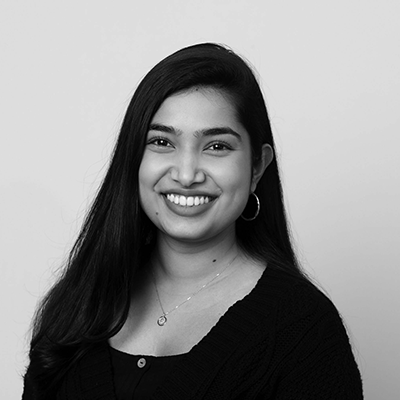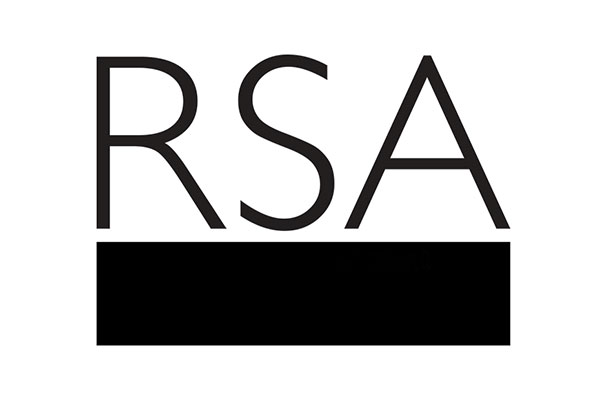The RSA’s mission encapsulates social change and progress. With the theme of this year’s International Women’s Day being “#PressForProgress,” Kavya Menon, our Fellowship Development Coordinator looks at the importance of increased diversity in the RSA Fellowship and the contributions we can make to women’s empowerment.
This past year has been one of upheavals in the fight for women’s rights, and has disrupted our social fabric in an unprecedented way. Powerful movements like the #MeToo campaign and #TimesUp were propelled into public view in part because of the profile of women in positions of power speaking up about sexual assault and harassment, and partly because the internet allowed for the creation of a transnational solidarity among women across the globe, who are now refusing to be silenced.
In the UK, this year has also marked 100 years since women in the UK won the right to vote. Suffragette history also has proven to be selective: women of colour who were part of the suffragette movement are often erased from history, and their achievements and contributions thereby diminished. Women of colour continue to be under-represented in the public sphere- only 0.7% of the UK’s top political, financial and security figures are BAME women. Let’s also remember that the #MeToo movement was started 10 years ago by Tarana Burke, a black American woman, to help empower young women, especially in minority communities, and lift them from the shame they felt at being victims of sexual assault.
Our aspirations for gender equality and social justice must involve centring unheard voices and increasing representation of women of colour. It must involve supporting women to develop networks and initiatives for self-empowerment and progress.
At the RSA, we want to encourage this very atmosphere. We strive to create social change and justice in our mission, and our global Fellowship plays a significant role in achieving this. On International Women’s Day, we want to #PressForProgress by highlighting some of the fantastic work being done by a few of our Fellows- who are also women of colour- and contribute to increasing the visibility and representation of women.
Michelle Moore FRSA has over a decade of experience leading initiatives at the intersection of sport and social change. She works with national and international sports bodies, and government and advocacy organisations to achieve sustainable social impact through sports education programmes. As a Trustee for the Runnymede Trust, her latest project is the Basketball Inspiration Programme, which uses basketball to inspire and motivate girls. It introduces them to strong sports role models, challenges objectification and gender stereotypes in sport, and improves overall well-being.
Octavia Goredema MBE is one of our Global Fellows, based in the United States. She is the founder and editor of Twenty Ten Talent, a media platform that supports young black women in business by accelerating their careers. She is also the founder of Twenty Ten Club, which showcases the achievements of over 100 black female business role models from across the world. She is also in the UK on March 8 to speak at the University of Oxford about “one hundred years of women’s suffrage: how far have we come?”
Mandu Reid FRSA is a champion of both women’s rights and sustainability, and runs The Cup Effect. They have operations in Kenya, Malawi and the UK to raise awareness about the environmental damage caused by disposable sanitary products, and educate women and girls about sustainable menstrual hygiene. The Cup Effect strives to eradicate taboos and stigma around menstruation and make menstrual cups widely accessible.
Talia Hussain FRSA, is an active member of the RSA’s Sustainability Network. She is the founder of Ramnation, which originated as a thought experiment on making a fashion product ethical and sustainable - from its production and manufacture, to its sale. She is currently interested in creating a consumer environment that addresses problems of sustainability in the clothing industry from the perspective of the consumer, and also looking at ideas to make the consumer retail experience more about the circular economy.
Ade Solanke FRSA is the director of Spora Stories, which is dedicated to stories of the African diaspora and increasing their representation in the arts. Her current projects are equally diverse: two of them dramatise important historical figures from British-African history. The first project “Phillis” is about Phillis Wheatley, the first African woman to publish a book of poetry. The second is about John Blanke, a Spanish-African musician in the court of Henry VIII. The third is a screenplay about growing up in Notting Dale, where Ade lived near the Grenfell Estate. It demonstrates a more diverse, inclusive side of the area, 20 years after the film Notting Hill.
Miranda Brawn FRSA founded the Miranda Brawn Diversity Leadership Foundation which promotes increasing diversity and equality in the UK. Her foundation provides mentoring and coaching programmes for BAME future leaders, scholarships, annual lectures, and also provides companies with access to a diverse pool of talent. She herself is an accomplished investment banker and barrister, and a strong role model for women from minority communities.
The RSA is keen to expand our global network of Fellows to include more women of colour. We are constantly looking to the future, encouraging new collaborations and creating new avenues for social change. Having more female Fellows, especially women of colour presents us with the chance to support these women in transforming their lives and communities, and help them build stronger networks to create the change they want to see around them. We would like to see more women of colour applying to the Fellowship, and more nominations from our existing Fellows for women. Joining the Fellowship gives our Fellows the chance to network with incredible women like Michelle, Octavia, Ade, Mandu, Miranda, Talia- and many more, and support women’s empowerment across the world. Sign up on the form above!
If you are a current Fellow and would like to nominate a woman of colour to the Fellowship, drop an email to Kavya Menon at Kavya.Menon@rsa.org.uk.
Related articles
-
Working with women in Wales and Africa
Jennifer Twelvetrees
Jennifer Twelvetrees FRSA describes her work with Women4resources in both Wales and Africa.
-
How female Fellows are changing the world
Ellie Profile
To mark International Women’s Day 2019, meet six remarkable female Fellows, who are working in various communities and sectors to improve society.
-
Empowering Women farmers in Vietnam
Alison Kwan
How Alison Kwan FRSA, winner of RSA Catalyst Seed Grant, is using the Grant to create an innovative, sustainable way to empower Women in Central Vietnam to be independent farmers.




Join the discussion
Comments
Please login to post a comment or reply
Don't have an account? Click here to register.
Great list of women of colour at the RSA! Are there any women FRSA working on STEM globally? I am linked to the International Network of Women Engineers and Scientists and always on the lookout for women, and men too, working towards gender equality in the sciences and engineering anywhere in the world.